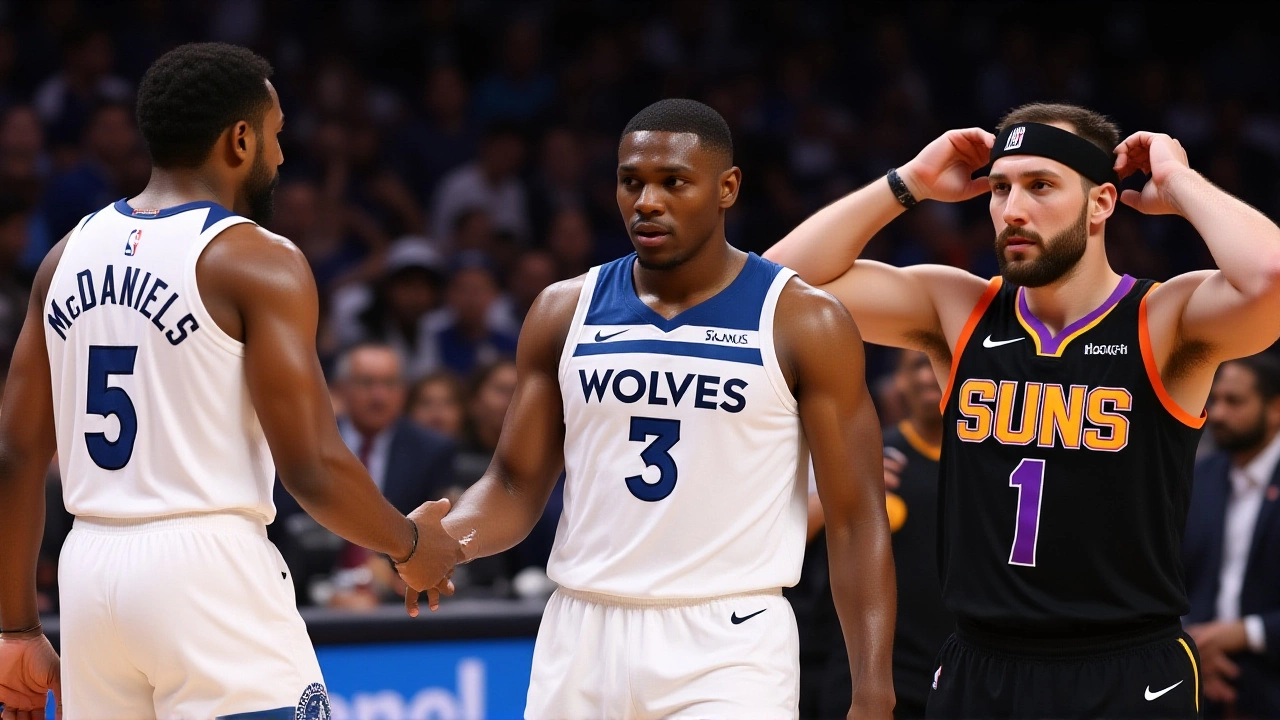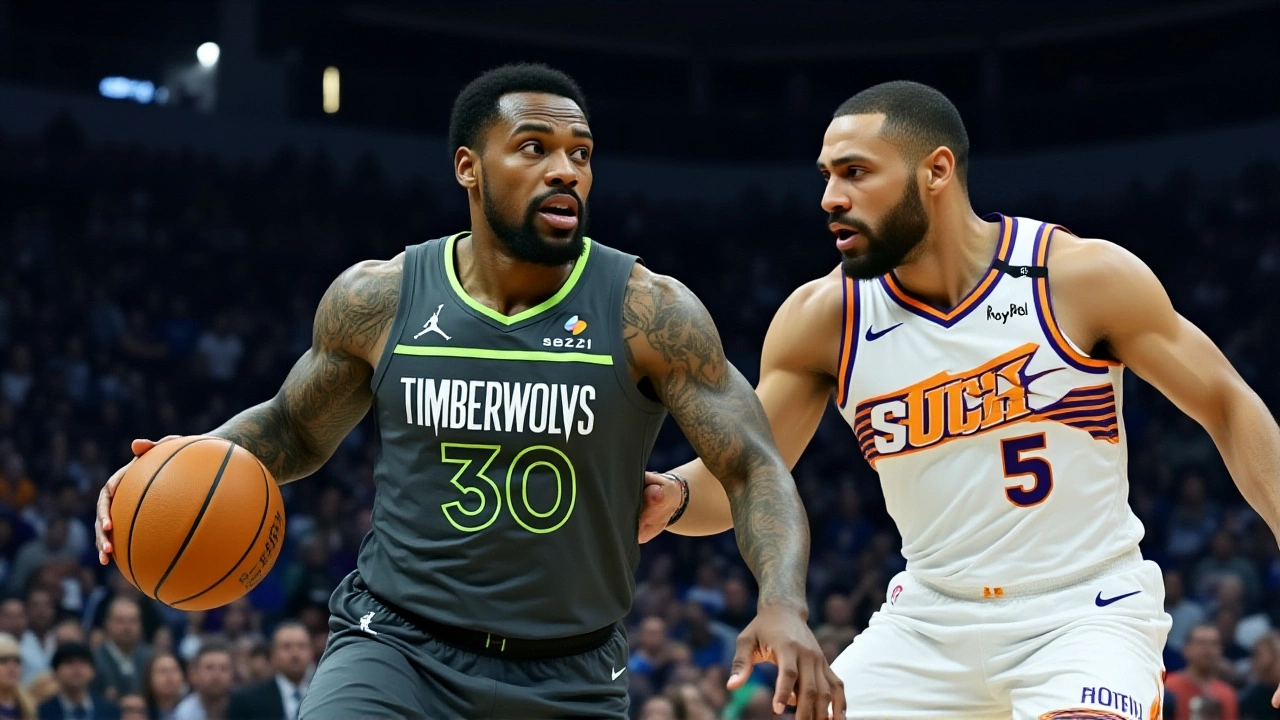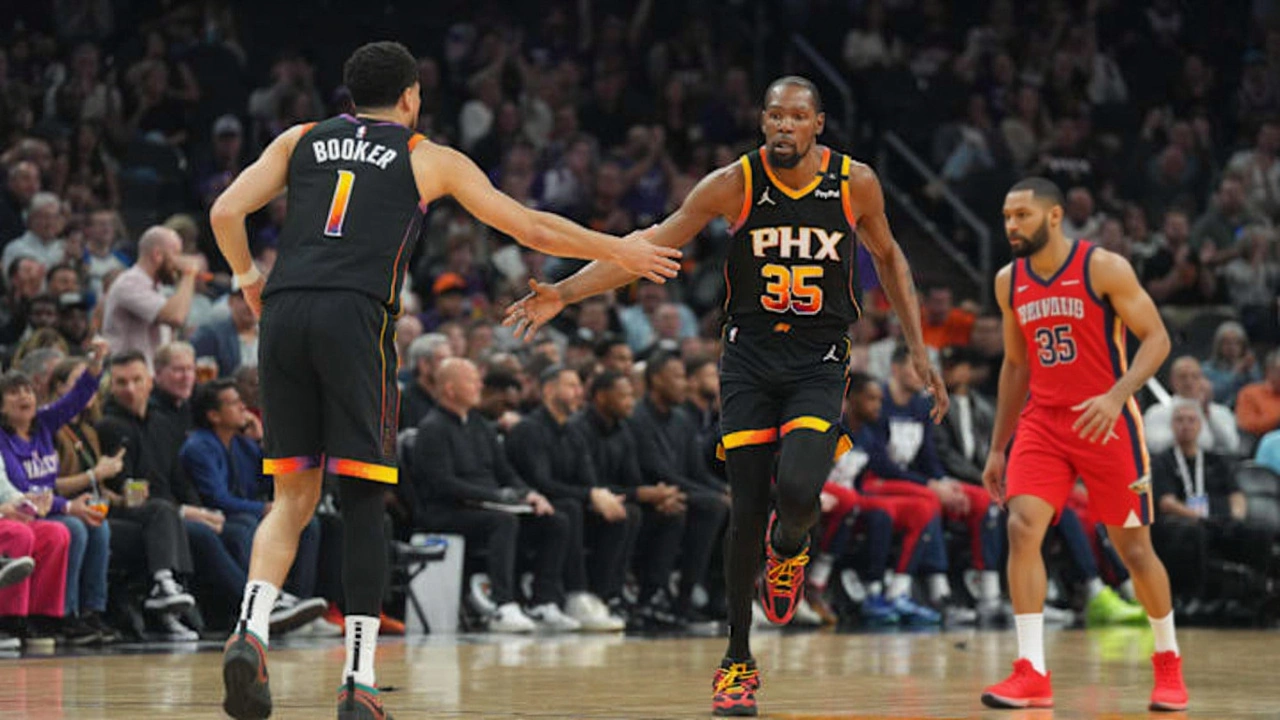With 6.4 seconds left and the Phoenix Suns trailing by two, Collin Gillespie rose up off a screen, caught the pass from Devin Booker, and released a contested 10-foot jumper that swished through the net. The Phoenix Suns had just completed one of the most improbable comebacks in Emirates NBA Cup history — a 114-113 win over the Minnesota Timberwolves on Friday night at the Mortgage Matchup Center in Phoenix. The crowd erupted. The Timberwolves’ bench sat frozen. And Anthony Edwards, who had scored 41 points, could only stare as the buzzer sounded — his team’s lead gone, his free throws missed, his season’s momentum slipping away.
A Comeback Built on Grit, Not Stars
The Suns entered this game without two key starters: Grayson Allen (right quad contusion) and Jalen Green (right hamstring strain). Their starting backcourt was gutted. Critics called them undersized. Bookmakers favored Minnesota by 4.5 points. But here’s the thing — the Suns don’t need stars to play hard. They need heart. And on this night, they had plenty.At halftime, Phoenix trailed 62-49. The Timberwolves, led by Anthony Edwards’s 19-point third quarter, had stormed back to take an 82-81 lead. By the 1:09 mark, Minnesota was up 113-105. It looked over. The Wolves had played like a team destined to top Group B. But then came the collapse — and the miracle.
The Turning Point: Free Throws That Didn’t Fall
With 12.7 seconds left and the Timberwolves up 113-110, Anthony Edwards stepped to the line for a one-and-one. He missed the first. The crowd gasped. He missed the second. The Suns had life. Dillon Brooks, who had already poured in 22 points and drained four threes, drew a foul on the next possession. He sank both free throws. Tie game. 113-113. The momentum had shifted. The air in the arena thickened. The Wolves had choked. The Suns had smelled blood.Then came the play: a high screen from Royce O'Neale, a handoff to Collin Gillespie, a step-back, a fadeaway over Jaden McDaniels — and nothing but net. 6.4 seconds. The Wolves called timeout. No time to design anything complex. Julius Randle launched a 3-pointer from the wing — airball. Game over.

Statistical Irony: Slumps Broken, Stars Stumbled
The numbers tell a wild story. Anthony Edwards had shot 3-for-30 from three over his last four games. He went 1-for-6 from deep Friday night — but still dropped 41. He was dominant. He was brilliant. And he still lost. Meanwhile, Devin Booker, who entered the game shooting 15.4% from three over his last six games, went 2-for-8 — but made the key assist to Gillespie. Sometimes, it’s not about the stats. It’s about the moment.Dillon Brooks finished with 22 points, five rebounds, and four threes before fouling out. Collin Gillespie — the unheralded guard from Villanova — had 20 points, seven rebounds, and four threes. Royce O'Neale added 19. The Suns’ starting five averaged 68 points. Minnesota’s two stars — Edwards and Randle — combined for 66.
What This Means for the NBA Cup Race
The win improved the Suns to 2-0 in the Emirates NBA Cup and 10-6 overall. They’re now tied for second in Group B. The Timberwolves, who entered the game 2-0 and with a plus-54 point differential, fell to 2-1. Their lead in the group evaporated. And with a trip to Sacramento looming on Monday, they now face pressure — not just to win, but to prove they can close.Phoenix, meanwhile, has turned into the tournament’s most dangerous underdog. They’ve won without Allen. Without Green. Without a full rotation. And now, they’ve won with a shot no one saw coming. This isn’t just a win. It’s a statement: depth matters less than poise.

What’s Next? The Road Ahead
The Suns host the San Antonio Spurs on Sunday night, November 23, 2025 — a chance to build momentum before the Cup knockout rounds. The Timberwolves travel to Sacramento on November 24, needing a win to stay alive in Group B. But more than the standings, the psychological toll is real. Edwards missed two free throws that should have sealed it. Randle missed the last shot that could have saved it. The Wolves now carry the weight of a game they should have won.Meanwhile, Collin Gillespie — a player many didn’t know by name a month ago — became the face of Phoenix’s resilience. He didn’t need a highlight reel dunk. He didn’t need a 40-point night. He needed one shot. And he made it count.
Frequently Asked Questions
How did Collin Gillespie become the hero in this game?
Gillespie, a 27-year-old guard acquired in a mid-season trade last year, entered the game averaging just 8.2 points per game. But with Phoenix’s backcourt decimated by injuries, he was thrust into a starting role. He responded with 20 points, including four three-pointers, and made the game-winning shot with 6.4 seconds left — his first career game-winner. His poise under pressure stunned even his own teammates.
Why did Anthony Edwards miss those critical free throws?
Edwards, a two-time All-NBA selection, entered the game shooting 82% from the line this season. But he had been visibly fatigued after carrying Minnesota’s offense all night, logging 42 minutes. His second miss came after a long exhale and a slight hesitation — a rare lapse in his usually ice-cold clutch shooting. Analysts noted he may have been mentally drained after fighting through multiple Suns double-teams in the final minutes.
How did the Suns win without their top two guards?
Phoenix leaned on role players: Gillespie, O’Neale, and Brooks stepped up as primary scorers. Coach Frank Vogel shifted to a smaller, faster lineup, using Jusuf Nurkić as a playmaking center. The strategy forced Minnesota to guard the perimeter, opening driving lanes. It wasn’t pretty — but it worked. The Suns shot 46% from three, a season high.
What impact does this have on the NBA Cup standings?
The win ties the Suns with the Sacramento Kings for second in Group B, just one game behind Minnesota. With only the top two teams advancing, every game matters. Phoenix now controls their destiny — they need just one more win to lock in a knockout berth. For Minnesota, the loss opens the door for Sacramento and Utah to overtake them. The Wolves can no longer afford a slip-up.
Was this the biggest upset in NBA Cup history?
By point differential, no — the 2024 Lakers’ 28-point comeback against the Warriors holds that record. But by context, yes. Phoenix was missing two starters, playing without their primary ball-handlers, and facing a team that had outscored opponents by 54 points in their first two games. The emotional weight, the timing, and the sheer improbability make this one of the most shocking wins in the Cup’s short history.
What’s next for the Timberwolves’ playoff hopes?
Minnesota still leads the Northwest Division and is in solid playoff position. But this loss exposed a troubling trend: they struggle to close out games against gritty, undersized teams. If they can’t solve their late-game execution issues — especially with Edwards’ free-throw inconsistency — their postseason run could stall in the first round, regardless of their regular-season record.
